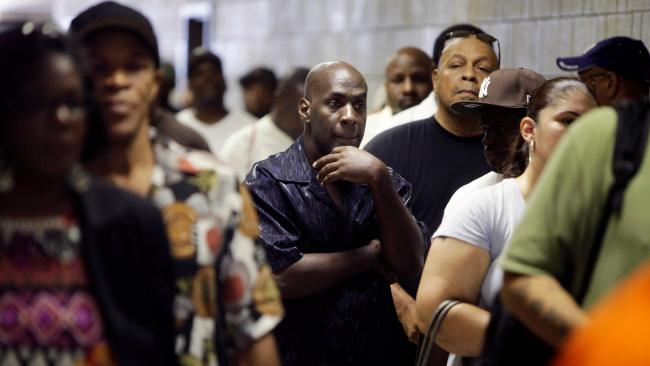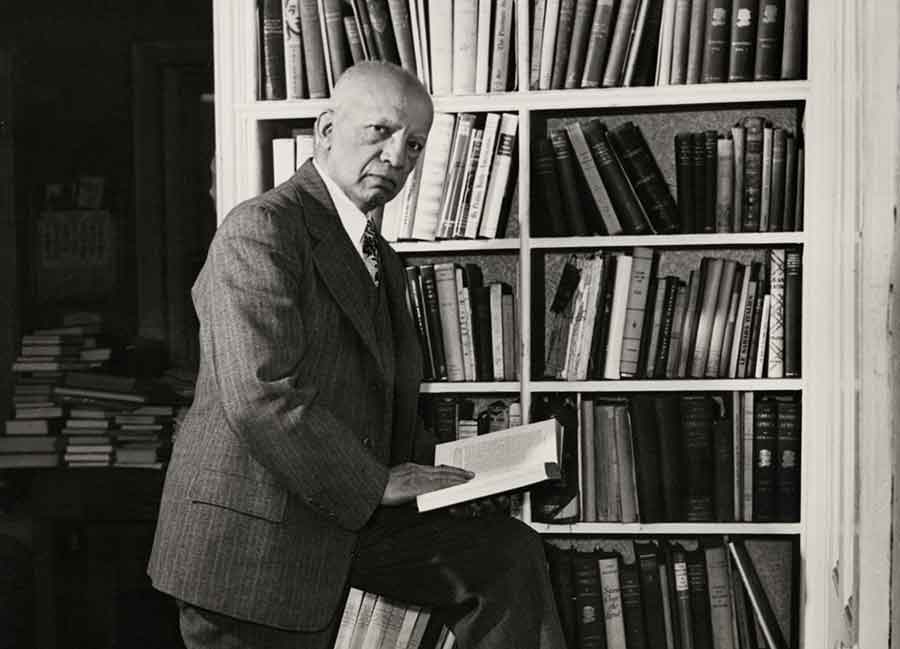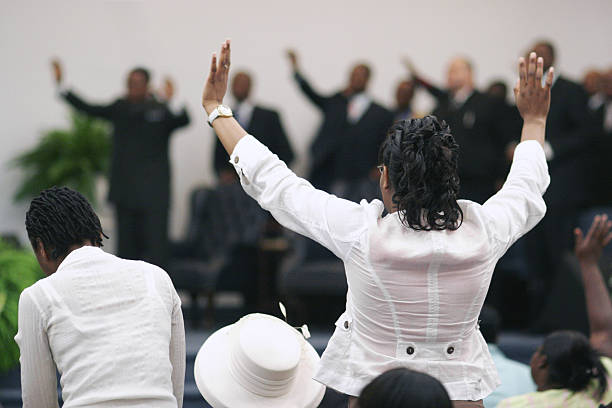(ThyBlackMan.com) Black poetry has always been a powerful medium through which African Americans have expressed their pain, joy, struggle, and triumph. From the times of slavery to the present day, Black poets have used their words to challenge oppression, celebrate their culture, and inspire future generations. This article will delve into some of the most famous Black poems, exploring the works of past and present poets, how these poems became famous, and their impact on literature and society.
![]()
1. “Still I Rise” by Maya Angelou
One of the most iconic poems in American literature, Maya Angelou’s “Still I Rise” is a powerful declaration of resilience in the face of adversity. Published in 1978 as part of her third volume of poetry, And Still I Rise, this poem has become synonymous with the struggle for Black empowerment and dignity.
Maya Angelou’s Legacy: Angelou was already a celebrated figure when she wrote “Still I Rise.” A poet, memoirist, and civil rights activist, she had gained national acclaim with her autobiography I Know Why the Caged Bird Sings. Her poetry, however, elevated her status even further, allowing her to voice the collective experiences of Black women in America.
Why “Still I Rise” Became Famous: The poem’s fame can be attributed to its universal message of hope and endurance. Its refrain, “I rise,” has resonated with countless readers, especially those who have faced oppression or marginalization. Angelou’s confident tone and use of vivid imagery make the poem both accessible and deeply moving. “Still I Rise” has been recited at numerous public events, including the inauguration of President Bill Clinton, further cementing its place in the American literary canon.
2. “The Negro Speaks of Rivers” by Langston Hughes
Langston Hughes is often referred to as the “Poet Laureate of Harlem,” and “The Negro Speaks of Rivers” is one of his most celebrated works. Written when Hughes was just 17 years old, this poem was published in the June 1921 issue of The Crisis, the official magazine of the NAACP. It later appeared in Hughes’ first collection, The Weary Blues (1926).
Langston Hughes’ Legacy: Hughes was a central figure in the Harlem Renaissance, a cultural movement that celebrated Black art, literature, and music in the 1920s and 1930s. His work often focused on the lives of ordinary Black people, capturing their struggles, dreams, and resilience.
Why “The Negro Speaks of Rivers” Became Famous: This poem’s fame lies in its profound exploration of Black history and identity. Hughes uses the metaphor of rivers to trace the journey of African Americans from ancient civilizations along the Nile to the Mississippi River during slavery. The poem’s deep, rhythmic language evokes a sense of timelessness, connecting the past with the present. “The Negro Speaks of Rivers” is often taught in schools and has been widely anthologized, making it one of the most recognized poems in American literature.
3. “We Real Cool” by Gwendolyn Brooks
Gwendolyn Brooks was the first African American to win a Pulitzer Prize, and her poem “We Real Cool” is among her most famous works. Published in 1959 in her collection The Bean Eaters, this short, sharp poem captures the voice of disillusioned Black youth.
Gwendolyn Brooks’ Legacy: Brooks was known for her keen observations of urban Black life. Her poetry often addressed social issues, including poverty, racism, and gender inequality. She became the Poet Laureate of Illinois in 1968 and later the Consultant in Poetry to the Library of Congress, a role now known as the U.S. Poet Laureate.
Why “We Real Cool” Became Famous: The poem’s fame comes from its unique structure and voice. Brooks uses a terse, almost musical rhythm to convey the bravado and vulnerability of young men who have dropped out of school. The poem’s last line, “We die soon,” serves as a stark reminder of the consequences of a life lived on the margins. “We Real Cool” is widely studied in schools and remains a powerful commentary on the impact of systemic inequality on Black youth.
4. “If We Must Die” by Claude McKay
Claude McKay’s “If We Must Die” is a rallying cry for resistance in the face of oppression. Written during the Red Summer of 1919, a period marked by racial violence and riots across the United States, the poem was published in the July 1919 issue of The Liberator.
Claude McKay’s Legacy: McKay was a key figure in the Harlem Renaissance and a staunch advocate for Black rights. His poetry often dealt with themes of resistance, pride, and social justice. Although McKay eventually moved to England and converted to Catholicism, his early work remains a cornerstone of Black literary tradition.
Why “If We Must Die” Became Famous: The poem’s fame is rooted in its powerful call to action. McKay urges his readers to face their oppressors with courage and dignity, even in the face of death. The poem’s universal message of resistance has made it an enduring symbol of the struggle for civil rights. It has been quoted by various leaders, including Winston Churchill during World War II, further solidifying its place in history.
5. “Phenomenal Woman” by Maya Angelou
Another masterpiece by Maya Angelou, “Phenomenal Woman,” celebrates the strength, beauty, and confidence of women. First published in 1978 in And Still I Rise, the poem has become a feminist anthem, particularly within the Black community.
Why “Phenomenal Woman” Became Famous: The poem’s fame can be attributed to its empowering message and Angelou’s captivating delivery. In “Phenomenal Woman,” Angelou rejects traditional notions of beauty, instead embracing the power that comes from self-assurance and inner strength. The poem’s rhythmic, chant-like structure makes it both memorable and inspiring, and it has been recited and referenced by countless women around the world.
6. “Harlem (What Happens to a Dream Deferred?)” by Langston Hughes
Langston Hughes’ “Harlem,” often referred to by its opening line, “What happens to a dream deferred?” is one of the most famous poems of the 20th century. Published in 1951 as part of his collection Montage of a Dream Deferred, the poem explores the frustration and despair of Black Americans who have been denied their dreams.
Why “Harlem” Became Famous: The poem’s fame lies in its powerful imagery and its exploration of a theme that resonates with many people. Hughes uses a series of similes to suggest the various ways that deferred dreams can manifest, from drying up “like a raisin in the sun” to exploding. The poem’s open-ended question leaves the reader to ponder the consequences of unfulfilled aspirations, making it a poignant commentary on the American Dream and the realities of racial inequality.
7. “Incident” by Countee Cullen
“Incident” by Countee Cullen is a brief yet powerful poem that captures the lasting impact of racism on a child’s psyche. Published in 1925 as part of his first collection, Color, the poem recounts a childhood memory of being called a racial slur during a visit to Baltimore.
Countee Cullen’s Legacy: Cullen was one of the leading poets of the Harlem Renaissance. His work often explored themes of race, identity, and social justice. Although he was sometimes criticized for adhering to traditional poetic forms, Cullen’s ability to convey profound emotions through simple language has earned him a lasting place in American literature.
Why “Incident” Became Famous: The poem’s fame comes from its stark portrayal of the lasting impact of a single racist encounter. In just twelve lines, Cullen captures the innocence of childhood, the cruelty of racism, and the deep psychological scars it can leave behind. “Incident” is often included in anthologies of American poetry and continues to be studied for its powerful message and emotional impact.
8. “Ego Tripping” by Nikki Giovanni
Nikki Giovanni’s “Ego Tripping” is a celebration of Black heritage, strength, and identity. First published in 1972 in her collection My House, the poem is a bold declaration of self-love and pride in African ancestry.
Nikki Giovanni’s Legacy: Giovanni is one of the most influential poets of the Black Arts Movement, a cultural movement in the 1960s and 1970s that sought to promote Black empowerment and cultural expression. Her poetry often addresses issues of race, gender, and social justice, and she has been a vocal advocate for civil rights throughout her career.
Why “Ego Tripping” Became Famous: The poem’s fame can be attributed to its celebratory tone and its powerful affirmation of Black identity. Giovanni uses grandiose imagery to place herself and her ancestors at the center of world history, challenging the Eurocentric narratives that have often marginalized Black contributions. “Ego Tripping” has been widely anthologized and remains a popular poem for recitation and performance, particularly in settings that celebrate Black culture and history.
9. “Mother to Son” by Langston Hughes
Another classic by Langston Hughes, “Mother to Son” is a poignant monologue in which a mother shares her wisdom and experiences with her son. First published in 1922 in The Crisis, the poem has become one of Hughes’ most enduring works.
Why “Mother to Son” Became Famous: The poem’s fame lies in its universal message of perseverance and resilience. Hughes uses the metaphor of a staircase to represent the mother’s difficult life journey, filled with obstacles and hardships. Despite these challenges, she urges her son to keep climbing and never give up. The poem’s simple yet powerful language has made it a favorite among readers and educators alike, and it is often recited at events that celebrate perseverance and determination.
10. “A Litany for Survival” by Audre Lorde
Audre Lorde’s “A Litany for Survival” is a powerful meditation on fear, survival, and the necessity of speaking out. Published in her 1978 collection The Black Unicorn, the poem addresses the anxieties and struggles faced by marginalized people, particularly Black women and LGBTQ+ individuals.
Audre Lorde’s Legacy: Lorde was a self-described “Black, lesbian, mother, warrior, poet” who used her writing to confront issues of race, gender, and sexuality. Her work has been influential in both feminist and LGBTQ+ movements, and she remains a key figure in the intersectional feminist canon.
Why “A Litany for Survival” Became Famous: The poem’s fame can be attributed to its urgent, almost prophetic tone and its exploration of themes that resonate with many marginalized communities. Lorde’s use of repetition and direct address gives the poem a liturgical quality, making it both a prayer and a call to action. “A Litany for Survival” is often cited in discussions of social justice and activism, and it continues to inspire readers to confront their fears and fight for their rights.
11. “Homage to My Hips” by Lucille Clifton
Lucille Clifton’s “Homage to My Hips” is a celebration of the power, beauty, and independence of women’s bodies, particularly Black women’s bodies. First published in 1980 in her collection Two-Headed Woman, the poem has become one of Clifton’s most famous works.
Lucille Clifton’s Legacy: Clifton was known for her concise, powerful poetry that often focused on themes of family, identity, and resilience. She was a two-time finalist for the Pulitzer Prize and served as Maryland’s Poet Laureate from 1979 to 1985.
Why “Homage to My Hips” Became Famous: The poem’s fame lies in its unapologetic celebration of the female body and its rejection of societal standards of beauty. Clifton’s confident, assertive tone and her use of humor and sensuality make the poem both empowering and accessible. “Homage to My Hips” has been widely anthologized and is often performed at events that celebrate women’s empowerment and body positivity.
12. “The Ballad of Birmingham” by Dudley Randall
“The Ballad of Birmingham” by Dudley Randall is a haunting poem that commemorates the 1963 bombing of the 16th Street Baptist Church in Birmingham, Alabama, which resulted in the deaths of four young Black girls. First published in 1965 in The Broadside Press, the poem has become one of the most poignant tributes to the victims of racial violence.
Dudley Randall’s Legacy: Randall was a poet and publisher who founded Broadside Press, a key platform for Black poets during the Civil Rights Movement. His work often addressed themes of racial injustice, and he used his press to amplify the voices of Black writers.
Why “The Ballad of Birmingham” Became Famous: The poem’s fame can be attributed to its powerful narrative and its emotional impact. Randall uses the traditional ballad form to tell the story of a mother and daughter, capturing the tragedy of the bombing with stark, simple language. The poem’s combination of historical context and personal tragedy has made it a widely studied and anthologized work, and it continues to resonate with readers as a reminder of the devastating effects of racial violence.
13. “Let America Be America Again” by Langston Hughes
Langston Hughes’ “Let America Be America Again” is a powerful critique of the American Dream, exposing the gap between the nation’s ideals and the realities faced by marginalized communities. Written in 1935 and published in Esquire magazine, the poem later appeared in Hughes’ collection A New Song in 1938.
Why “Let America Be America Again” Became Famous: The poem’s fame lies in its bold, unapologetic examination of American society. Hughes contrasts the idealized vision of America as a land of freedom and opportunity with the harsh realities of racism, poverty, and inequality. The poem’s refrain, “Let America be America again,” is both a critique and a call to action, urging the nation to live up to its ideals. The poem has been widely anthologized and continues to be relevant in discussions of social justice and the American Dream.
14. “Caged Bird” by Maya Angelou
“Caged Bird” by Maya Angelou is a powerful metaphor for the Black experience in America. First published in her 1983 collection Shaker, Why Don’t You Sing?, the poem has become one of Angelou’s most famous works.
Why “Caged Bird” Became Famous: The poem’s fame can be attributed to its vivid imagery and its exploration of themes of freedom and oppression. Angelou contrasts the experiences of a free bird with those of a caged bird, using the latter as a metaphor for the systemic racism and oppression faced by Black people. The poem’s simple yet powerful language makes it both accessible and deeply moving, and it has been widely anthologized and taught in schools.
15. “won’t you celebrate with me” by Lucille Clifton
Lucille Clifton’s “won’t you celebrate with me” is a powerful poem that celebrates the resilience and strength of Black women. First published in 1993 in her collection Book of Light, the poem has become one of Clifton’s most famous works.
Why “won’t you celebrate with me” Became Famous: The poem’s fame lies in its defiant tone and its celebration of survival against the odds. Clifton uses the poem to assert her identity and to celebrate the fact that she has survived in a world that has often tried to erase her. The poem’s conversational tone and its direct address to the reader make it both intimate and powerful, and it has been widely anthologized and performed at events that celebrate Black womanhood and resilience.
16. “Poem About My Rights” by June Jordan
June Jordan’s “Poem About My Rights” is a powerful exploration of identity, violence, and resistance. First published in her 1980 collection Passion, the poem addresses issues of sexual violence, racial oppression, and the struggle for self-determination.
June Jordan’s Legacy: Jordan was a poet, essayist, and activist who used her writing to confront issues of race, gender, and social justice. Her work has been influential in both feminist and Black literary traditions, and she remains a key figure in discussions of intersectionality.
Why “Poem About My Rights” Became Famous: The poem’s fame can be attributed to its raw, unapologetic tone and its exploration of themes that resonate with many marginalized communities. Jordan uses the poem to assert her right to exist, to resist, and to define her own identity. The poem’s direct, confrontational language makes it both powerful and accessible, and it has been widely anthologized and cited in discussions of social justice and activism.
17. “America” by Claude McKay
Claude McKay’s “America” is a complex poem that expresses both love and criticism for the United States. First published in 1921 in The Liberator, the poem captures the ambivalence that many Black Americans feel towards a country that offers both opportunities and oppression.
Why “America” Became Famous: The poem’s fame lies in its exploration of the contradictions of the American experience. McKay uses the sonnet form to express his love for America, even as he criticizes its racism and inequality. The poem’s nuanced portrayal of the complexities of national identity has made it a widely studied and anthologized work, and it continues to resonate with readers as a reflection of the challenges and contradictions of the American Dream.
18. “For My People” by Margaret Walker
Margaret Walker’s “For My People” is a powerful tribute to the resilience and strength of African Americans. First published in 1942 as part of her collection For My People, the poem has become one of Walker’s most famous works.
Margaret Walker’s Legacy: Walker was a poet, novelist, and scholar who used her writing to celebrate Black culture and history. Her work has been influential in both Black and feminist literary traditions, and she remains a key figure in discussions of Black identity and empowerment.
Why “For My People” Became Famous: The poem’s fame can be attributed to its powerful language and its celebration of Black resilience and strength. Walker uses the poem to pay tribute to the struggles and triumphs of African Americans, capturing both their pain and their joy. The poem’s rhythmic, almost musical language makes it both memorable and inspiring, and it has been widely anthologized and performed at events that celebrate Black culture and history.
19. “won’t you celebrate with me” by Lucille Clifton
Lucille Clifton’s “won’t you celebrate with me” is a powerful poem that celebrates the resilience and strength of Black women. First published in 1993 in her collection Book of Light, the poem has become one of Clifton’s most famous works.
Why “won’t you celebrate with me” Became Famous: The poem’s fame lies in its defiant tone and its celebration of survival against the odds. Clifton uses the poem to assert her identity and to celebrate the fact that she has survived in a world that has often tried to erase her. The poem’s conversational tone and its direct address to the reader make it both intimate and powerful, and it has been widely anthologized and performed at events that celebrate Black womanhood and resilience.
20. “Poem About My Rights” by June Jordan
June Jordan’s “Poem About My Rights” is a powerful exploration of identity, violence, and resistance. First published in her 1980 collection Passion, the poem addresses issues of sexual violence, racial oppression, and the struggle for self-determination.
June Jordan’s Legacy: Jordan was a poet, essayist, and activist who used her writing to confront issues of race, gender, and social justice. Her work has been influential in both feminist and Black literary traditions, and she remains a key figure in discussions of intersectionality.
Why “Poem About My Rights” Became Famous: The poem’s fame can be attributed to its raw, unapologetic tone and its exploration of themes that resonate with many marginalized communities. Jordan uses the poem to assert her right to exist, to resist, and to define her own identity. The poem’s direct, confrontational language makes it both powerful and accessible, and it has been widely anthologized and cited in discussions of social justice and activism.
Black poetry has a rich and diverse history, reflecting the experiences, struggles, and triumphs of African Americans over the centuries. The poems discussed in this article are just a few examples of the many powerful works that have emerged from the Black literary tradition. From the Harlem Renaissance to the Black Arts Movement to contemporary voices, Black poets have used their words to challenge oppression, celebrate their culture, and inspire future generations. Their work continues to resonate with readers around the world, offering both a window into the Black experience and a powerful call to action for social justice and equality.
This exploration of famous Black poems and their writers highlights the enduring power of poetry to capture the human experience and to serve as a catalyst for change. Whether addressing issues of race, gender, identity, or social justice, Black poets have made an indelible mark on American literature and continue to inspire and challenge readers with their powerful words.
Each of these poems has earned its place in the literary canon, not just for its artistic merit but also for its ability to speak to the experiences and struggles of Black people in America and around the world. These poems, and the poets who wrote them, will continue to inspire and challenge readers for generations to come.

















Leave a Reply